Featured 2

Arrival of the third Malon de la Paz in the city of Buenos Aires on the day of the Pachamama to raise awareness about the situation in the province of Jujuy. Photo by Nicolas Pousthomis
Third Malón de la Paz sees massive pushback against land grabbing and lithium mining reforms in Jujuy province
Indigenous women are at the forefront of protests in Argentina against recent legislation that tramples on their land and community rights, restricts protests and freedom of assembly, and hands power to mining companies keen to exploit their lithium-rich homelands.
The protests started in the north-western province of Jujuy, which borders Bolivia and Chile, but resistance has spread to Buenos Aires, where many women remain camped out in front of the Palace of Justice, home of the country's Supreme Court.
Jujuy has a large Indigenous population - almost 8% of residents identify as Indigenous, triple the provincial average - and also falls into the so-called "lithium triangle". The extensive salt flats of northern Argentina, northern Chile and southern Bolivia contain the majority of the world's reserves of lithium. Nicknamed 'white gold', the mineral is in high demand for use in batteries and the transition to so-called 'clean' energies, but mining it demands vast amounts of water and damages ecosystems.
In June, Jujuy's governor Gerardo Morales pushed through reforms to the province's constitution that allowed for the forced dispossession of Indigenous territories, restricted the right to strike and assemble, and criminalised roadblocks. The reforms were approved in less than a month without prior consultation with Indigenous peoples or the wider Jujuy population.
Women were the first to appear on television denouncing the reforms and the repressive
response of the Jujuy government. Indigenous women, who are often silenced and marginalised, and usually only appear in the media when being made fun of or blamed for their children's malnutrition, spoke out as defenders of the land. They also sounded the alarm about human rights violations in Jujuy.
One of these women is Natalia Machaca, who has been protesting since the constitutional reforms were passed in mid-June. A 43-year-old Kolla woman and a representative of the nearby villages of Yala, Lozano and León, she joined a roadblock outside the historic town of Purmamarca. In the background are the multicoloured hills known as the Cerro de los Siete Colores, which attract thousands of tourists every year.
Arrest warrants were issued for Machaca and other protesters, though they have yet to be arrested. She has been restricted from leaving Jujuy and must report to the prosecutor's office in Humahuaca every two weeks. "They fabricated a case against me," she said. Security forces are accused of using excessive violence to break up roadblocks and demonstrations, and many people have been arbitrarily detained, beaten and criminalised for protesting.
The image of another Kolla woman from Jujuy also appeared across major media outlets in June. Verónica Chávez, president of the Tres Pozos Sanctuary Community, posed with James Cameron, the world-famous film director and environmental activist, holding a handmade sign reading "Communities Salinas Grandes - Laguna Guayatayoc". The sign referred to the 33 Indigenous communities in the Salinas Grandes - Laguna Guayatayoc watershed, which spans the provinces of Jujuy and Salta.
Cameron had been invited to Argentina to attend a sustainability forum, which included a tour of Jujuy with the governor Morales to showcase supposed advances in renewable energy.
Until meeting Chávez, the filmmaker was unaware of Morales' extractivist plan and the Indigenous resistance to it. Chávez told Cameron about the 13-year battle against lithium mining in the Salinas Grandes Basin, how both national and provincial governments had betrayed their promises to protect Indigenous territories, and how water rights are integral to their communities' livelihoods.
Since 2010, the Indigenous communities in the Salinas Grandes - Laguna Guayatayoc watershed have demanded the implementation of their right to prior, informed and free consultation regarding the exploitation of the lithium-rich salt flats where they live. This right is enshrined in the International Labour Organization Convention 169, in force in Argentina since 2000.
These communities do not hold property titles to the lands they inhabit, but they do have the right to their ancestral territories under Argentina's 1994 constitution. In 2010, they filed a petition with the country's Supreme Court, which refused to hear the case, so they took it to the Inter-American Commission on Human Rights (IACHR) and the United Nations.
The United Nations special rapporteur on iIndigenous rights, James Anaya, visited the communities surrounding the salt flats and issued a report in 2013. This year, in March, the Supreme Court requested a report from the state.
However, the constitutional reforms passed in June establish "non-consented tenure" of lands as a "serious violation of property rights", opening the door for mining companies to dispossess Indigenous peoples of their lands.
Long live the wiphalas
Natalia Machaca says Indigenous women have always been part of the struggle, but they have not been so vocal in the past. "Now many of us have found our voices. There are many who cannot speak out due to persecution and fear because the police target their children. But several of us have taken up the mantle," she said.
"The government knows that women make themselves heard, and sometimes in our communities we are the ones who set the agenda."
Silvia Durán, from the Cueva del Inca community in Tilcara, is another leader of the resistance in Purmamarca. She and Natalia witnessed older women being beaten by the police. "Our grandmothers have been violated," said Durán during a meeting of local activists and feminists in mid-August.
"They may have burned everything [when evicting the roadblock], but they cannot steal our convictions," Durán said at the meeting. "There is communal politics in our communities. We have a tremendous flame that will not be extinguished. Long live the wiphalas; down with this reform."
The wiphala, a multicoloured flag adopted by Indigenous peoples in the Andes, is a common sight at many of the Jujuy protests.
Mexican anthropologist and muxe (a third gender person recognised in Zapotec cultures) Amaranta Gómez Regalado, and Flora Aguilar, former leader of the largest organisation of peasant women in Bolivia, also came to the meeting, to show solidarity and exchange ideas with the women of Jujuy.
Marching to Buenos Aires
At the end of July, the 'Third Malón de la Paz' set out from Jujuy to Buenos Aires. Natalia Machaca wanted to take part, but couldn't due to the restraining order against her
The First Malón was a march by Indigenous people from north-western Argentina to Buenos Aires in 1946, to demand the restitution of their ancestral lands from then-president Juan Péron. The word malón refers to a surprise incursion, a tactic used historically by Indigenous peoples in South America. The Second Malón occurred in 2006. The Third Malón - now dominated by women - represents 400 Indigenous communities in Jujuy.
One group of marchers left the city of La Quiaca on 25 July, travelling more than 1,800 kilometres to reach Buenos Aires on Pachamama Day, 1 August. They paraded through the city to the Palace of Justice (aka Tribunales), where they made an offering to Pachamama (Mother Nature) and celebrated with dance and music. Taty Almeida, from the human rights organisation Mothers of the Plaza de Mayo, expressed her support for the struggle.
Since then the maloneras have been camped in Plaza Lavalle, which faces Tribunales and a school named after the military officer and former president Julio Roca, who led the 1878-85 'Conquest of the Desert', considered an Indigenous genocide. The presence of the Third Malón in Buenos Aires brings the spirit of the land to the middle of the city - colourful wiphalas contrast with the grey streets of the capital, but there's also a clash of world views and different understandings of justice.
"We came because in Jujuy we are censored and not heard," said Susana Colpares, who arrived from Pueblo Viejo, a village in Jujuy. "We do not appear in the media. We do not have justice. Our grandparents say that we must fight, as they did in the First Malón, and they give us strength."
They want the Supreme Court to listen to them, to repeal Jujuy's unconstitutional reforms and to intervene in the provincial government. While handing out flyers listing these demands, Susana added: "In Indigenous communities, women are almost always at the forefront."
Every day, they walk the streets of Buenos Aires to keep their protest alive. They march to the Congress, meet with legislators, organise cultural festivals and gather support and donations, while most of the media - and the Supreme Court - turn their backs. Women often lead the way, holding a handmade cloth banner with a wiphala in the centre and a cry of hope, Jallalla, on either side. The expression comes from Indigenous Andean peoples and means, among other things, strength.
At 19, Milagros Lamas is one of the youngest maloneras, hailing from the community of Pozo Colorado in Salinas Grandes, where they chant: "No to lithium. Yes to water and life."
"The role of women is very important," she said. "We are equals in this struggle. We care for Mother Nature as if she were our own mother. We have the strength to say, let's keep going. The journey has never been easy, but we know how to motivate each other."
Natalia Machaca agreed: "Today, words and participation are shared. Women have not allowed themselves to be overrun, as in previous malones where the men spoke. That enclosure no longer exists; what exists is the media blockade. But many of us have started to use TikTok, Facebook, whatever we have on hand to speak up for the defence of our territories."
The importance of social media in Indigenous struggle and its multiple layers of meaning were on display on 24 August, when a video of a journalist mocking an Indigenous couple on a Buenos Aires subway train went viral.
Kantuta Killa and her husband Wari Rimachi, wearing traditional clothing, were returning from meeting their Malón brothers and sisters, and were mocked for speaking in Quechua, not Spanish. The mistreatment of the couple caused massive public outrage. More than 2,000 complaints were filed to the Public Defender's Office and the Institute against Discrimination and Racism.
Kantuta Killa's words to the journalist were an important political lesson. When the reporter asked who she had voted for in the primary elections held earlier in August, Killa replied: "I won't tell you because the vote is not public. These are serious matters because we are deciding the destiny of a country."
Indigenous women have always been engaged in politics, from the transmission of ancestral memory to community care work and the protection of identity. These are forms of organisation that are foreign to the Western and urban gaze - even within feminism, which until recently kept these struggles and claims at a distance.
"Indigenous peoples, especially women, have a political stance: the defence of the Pachamama, of water and of life," said Machaca. "We will continue to protest until the reform falls."
From openDemocracy






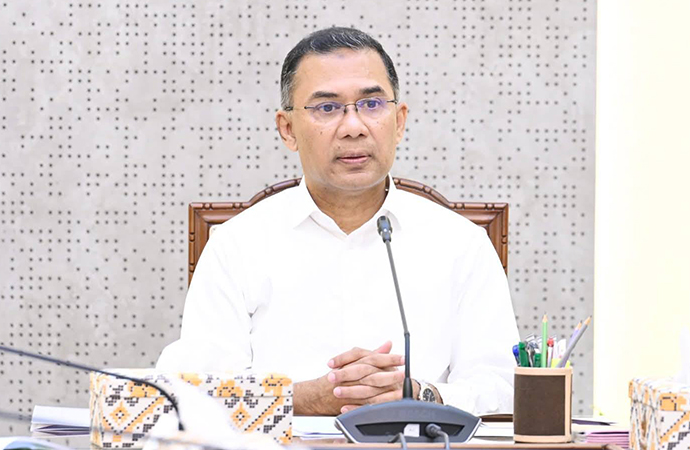
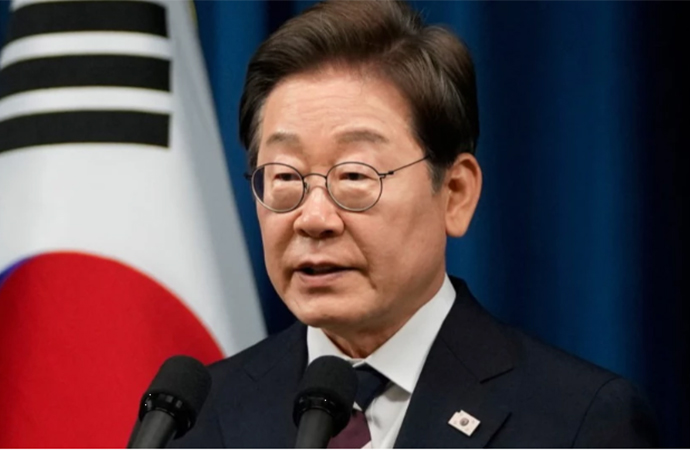
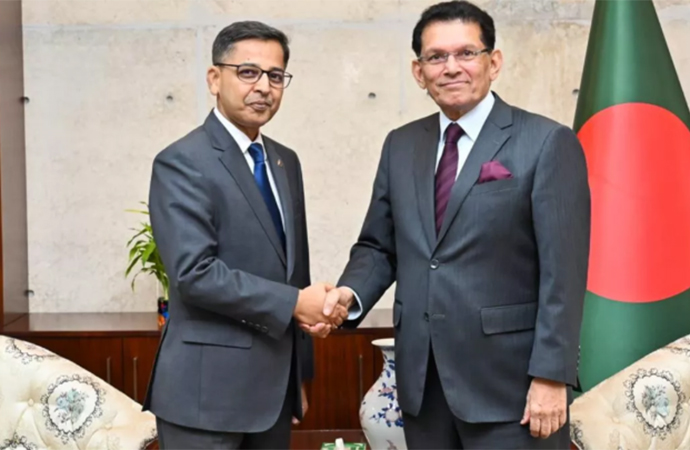
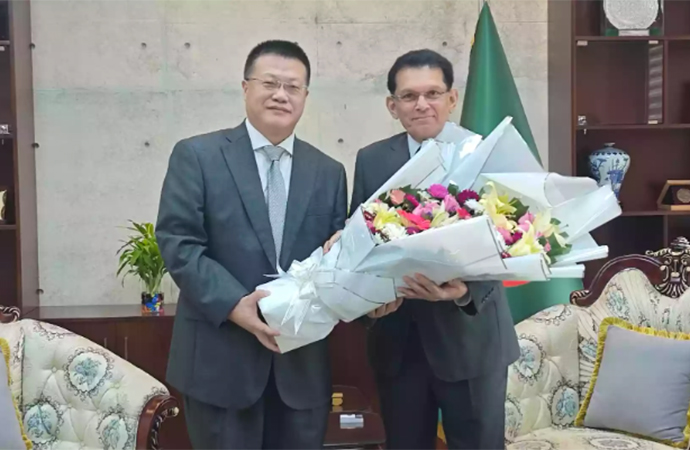
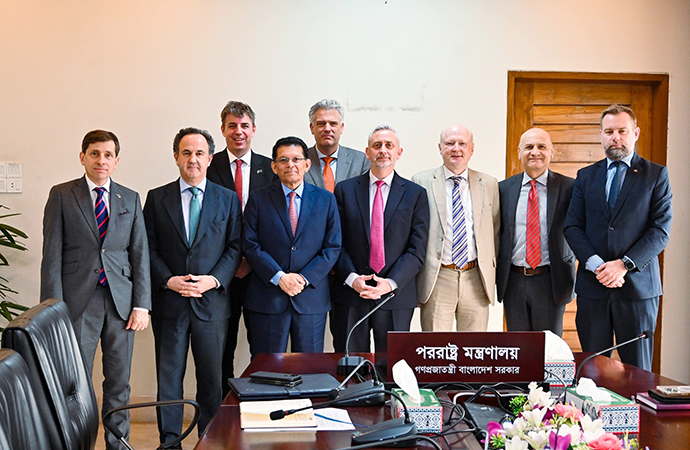
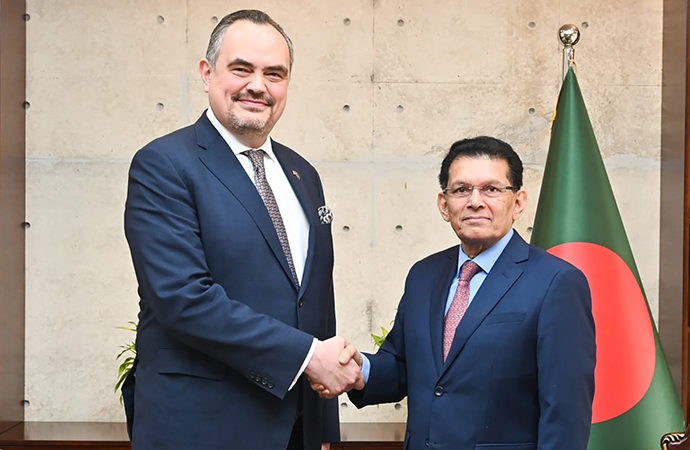













Leave a Comment
Recent Posts
Bangladesh’s first drought-res ...
In a groundbreaking development for Bangladesh’s agriculture, Ga ...
US and Iran hold another round ...
Iran and the United States were holding another round of indirect talk ...
An early hiccup for the new government?
Japan invites PM Tarique, eyes cooperation with Bang ..
Bangladesh to achieve sustained growth, prosperity u ..
Dhaka indicates ‘forward looking, balanced partnersh ..